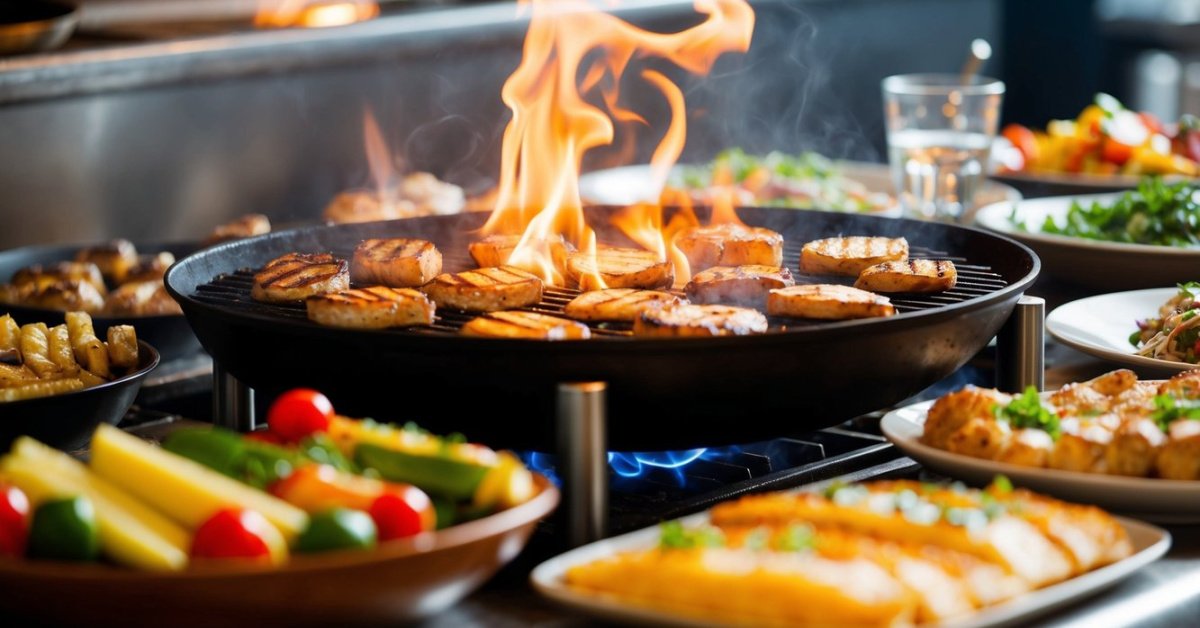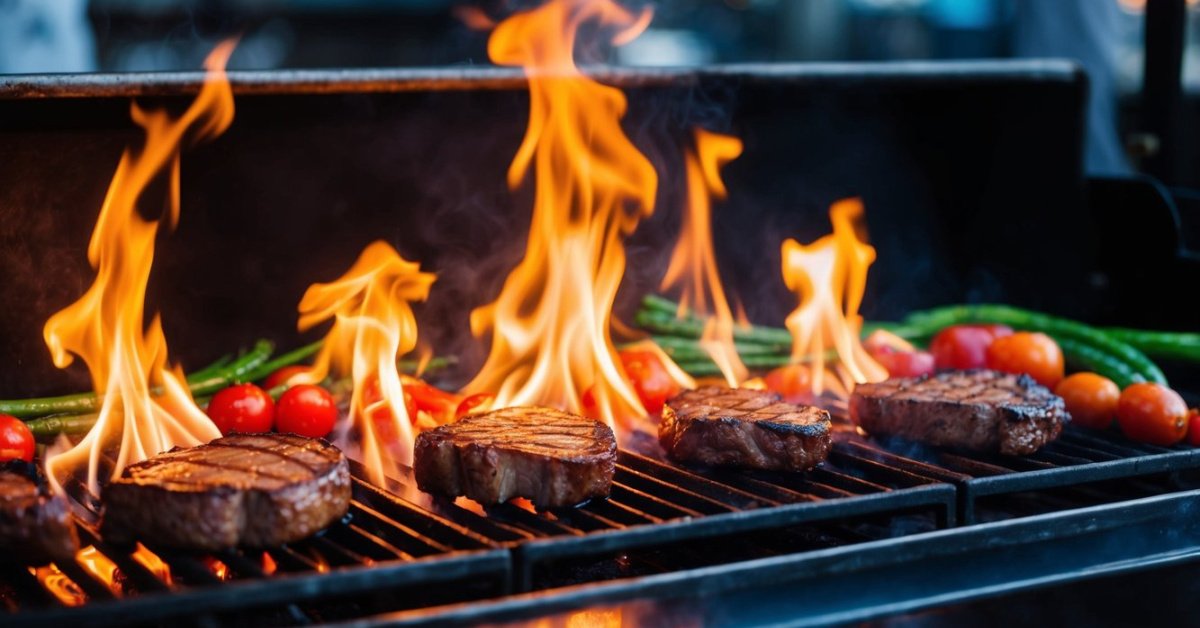The Neighbor’s Guide to Resting a Turkey: Essential Tips for Achieving Mouth-Watering Flavor and Texture
Ah, the delicious aroma of a freshly grilled turkey is enough to make anyone’s taste buds tingle. But, did you know that how long you rest your turkey can make all the difference in how it tastes and feels? Resting a turkey is crucial to achieving that perfect texture and flavor that makes your mouth water.

For novice grillers looking to take their turkey game to the next level, we’ve got you covered. In this article, we’ll cover all the important factors that influence how long your turkey should rest, as well as some essential guidelines for determining the appropriate rest time. We’ll also share some tips for allowing your turkey to rest properly while maintaining its juiciness and flavor.
Don’t let your bird go to waste by skipping the all-important resting phase. Join us as we explore how to give your turkey the perfect amount of time to rest and achieve that mouth-watering taste we all crave. Keep reading; it’s going to be delicious!
Understanding the importance of resting a turkey
As a seasoned grilling enthusiast, I cannot stress enough the importance of resting your turkey after it’s done cooking. Resting allows the juices to redistribute throughout the meat, resulting in a more succulent and tender final product.
But how long should you rest your turkey? The answer is not as simple as giving a specific time frame. It depends on various factors such as size, temperature at which it was cooked, and personal preference.
As a general rule of thumb, aim to let your turkey rest for at least 20-30 minutes before carving. This gives ample time for the juices to settle back into the meat fibers and prevents them from spilling out when sliced.
However, if you’ve cooked an extra-large bird or roasted it at low temperatures for several hours, you may want to extend this resting period up to an hour or more. This will allow maximum tenderness without compromising flavor or texture.
Keep in mind that every grill master has their own unique approach when it comes to resting times – some prefer shorter rests while others swear by longer ones. Ultimately, what matters most is that you’re paying attention to all aspects of cooking including prepping beforehand through brining; setting up indirect heat zones with wood chips; checking internal temps frequently; and finally letting those flavors meld together during rest time!
Factors that influence the resting time of a turkey
When it comes to cooking the perfect turkey, understanding all of the factors that influence its resting time is essential. As a grilling enthusiast, you want to impress your guests with juicy and flavorful meat that has been allowed to rest properly.
One of the key factors that can influence how long your turkey needs to rest is its size. Larger birds will require more time for their juices to redistribute evenly throughout the meat, so plan accordingly.
Another important consideration is whether or not you have brined your turkey prior to cooking. Brining can help add moisture and flavor but also means that extra care needs to be taken when allowing it adequate resting time after being removed from heat.
The type of grill or smoker used also plays a significant role in determining how long a turkey should rest before carving. Charcoal grills give off intense heat which can cause meats like poultry and beef steaks cook faster than their counterparts on gas grills; as such these meats may need less resting times than normal.
Ultimately, achieving perfect results when it comes down down-to-grilled turkeys requires both knowledge about various elements—such as bird size—and attention paid during each stage (including post-cooking). By taking into account all relevant variables involved in preparing this succulent bird properly ahead-of-time while keeping an eye on things every step along way until serving up hot slices at dinner table later on—you’ll soon become known among friends & family alike for consistently producing delicious dishes they’ll crave!
Guidelines for determining the appropriate rest time
Ah, the age-old question of how long should a turkey rest. As a grilling enthusiast myself, I know how important it is to get this right. Resting time is crucial for allowing the juices to redistribute and keeping your bird moist and flavorful.
Firstly, let’s talk about size. A smaller bird will require less resting time than a larger one. As a general rule of thumb, you should allow 15-20 minutes for every pound of meat.
But there are other factors at play too – such as cooking method and temperature. If you’re smoking your turkey low and slow, you’ll want to rest it for longer than if you’ve roasted it in the oven at higher temperatures.
One helpful tip is to use an instant-read thermometer inserted into the thickest part of the meat (but not touching bone) before resting – once it reaches 165°F or higher (the safe minimum internal temperature), take it off heat immediately then give ample time for resting after that point before carving–at least 30 minutes but up to an hour if possible!
In summary: when determining appropriate resting times there are many variables involved so be sure not just rely on weight but also factor in cooking method/temperature along with using an instant-read thermometer! With these guidelines under your belt even someone new can become confident grilling enthusiasts!
Tips for allowing your turkey to rest properly
Ah, the art of allowing your turkey to rest properly. It’s a crucial step that many grilling enthusiasts overlook and can make all the difference in achieving that perfectly juicy and flavorful bird.

« how long do ribs last in the fridge
can you use a grill mat on a pellet grill »
First things first, let’s talk about how long should a turkey rest. The general rule of thumb is to let it sit for at least 15-20 minutes after removing it from the heat source before carving into it. This allows time for all those delicious juices to redistribute throughout the meat, resulting in a more tender and moist bird.
But here’s where things get interesting – did you know that you can actually extend this resting period by wrapping your turkey in foil or placing it in an insulated cooler? This technique is known as “resting on steroids” and can take your turkey game to the next level.
By wrapping your rested turkey tightly in foil or placing it inside an insulated cooler (with no ice), you create an environment where residual heat continues to cook the meat while also keeping it warm and moist. This extra resting time – anywhere from 30 minutes up to two hours – allows for even further flavor development and ensures every bite is melt-in-your-mouth perfection.
So there you have it, my fellow grilling enthusiasts! Don’t underestimate the power of allowing your turkey ample time to rest before serving up slices of savory goodness. And if you really want to impress your guests this holiday season, give “resting on steroids” a try – trust me, they won’t be disappointed!
The impact of resting time on the taste and texture of your turkey
Resting time is a crucial yet often overlooked aspect of grilling and barbecuing that can greatly impact the taste and texture of your turkey. As a seasoned expert in the art of grilling, I cannot stress enough how important it is to allow your turkey to rest for an appropriate amount of time after cooking.
When meat is cooked, its juices are forced towards the center. Resting allows those juices to redistribute evenly throughout the meat, resulting in juicier and more flavorful meat. For turkeys, resting time should be at least 20-30 minutes before carving into it.
But why stop there? For even better results, consider allowing your turkey to rest for up to an hour or longer depending on its size. This will not only improve flavor but also texture as proteins continue cooking during resting without becoming overcooked or dry.
In addition, covering your turkey with foil during resting can help prevent moisture loss while keeping it warm until ready to serve.
So don’t rush into carving that juicy bird right away! Take some extra time and let it rest so you can enjoy all its deliciousness without sacrificing tenderness or juiciness. Your taste buds (and guests) will thank you!
Conclusion
When it comes to grilling the perfect turkey, understanding how long your bird should rest is an important part of the cooking process. While there are a variety of factors that influence resting time, using these guidelines and tips can help you respond accordingly when determining the appropriate length for your turkey. Now that you know more about resting turkeys, why not put this knowledge into practice and see how much better your grilling can become?














